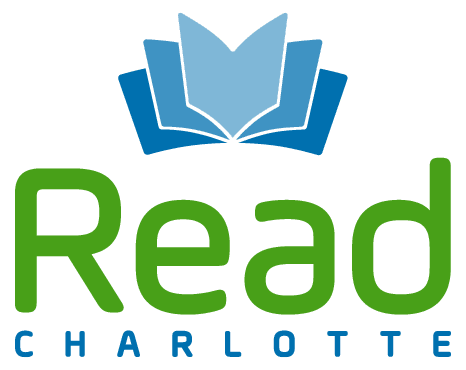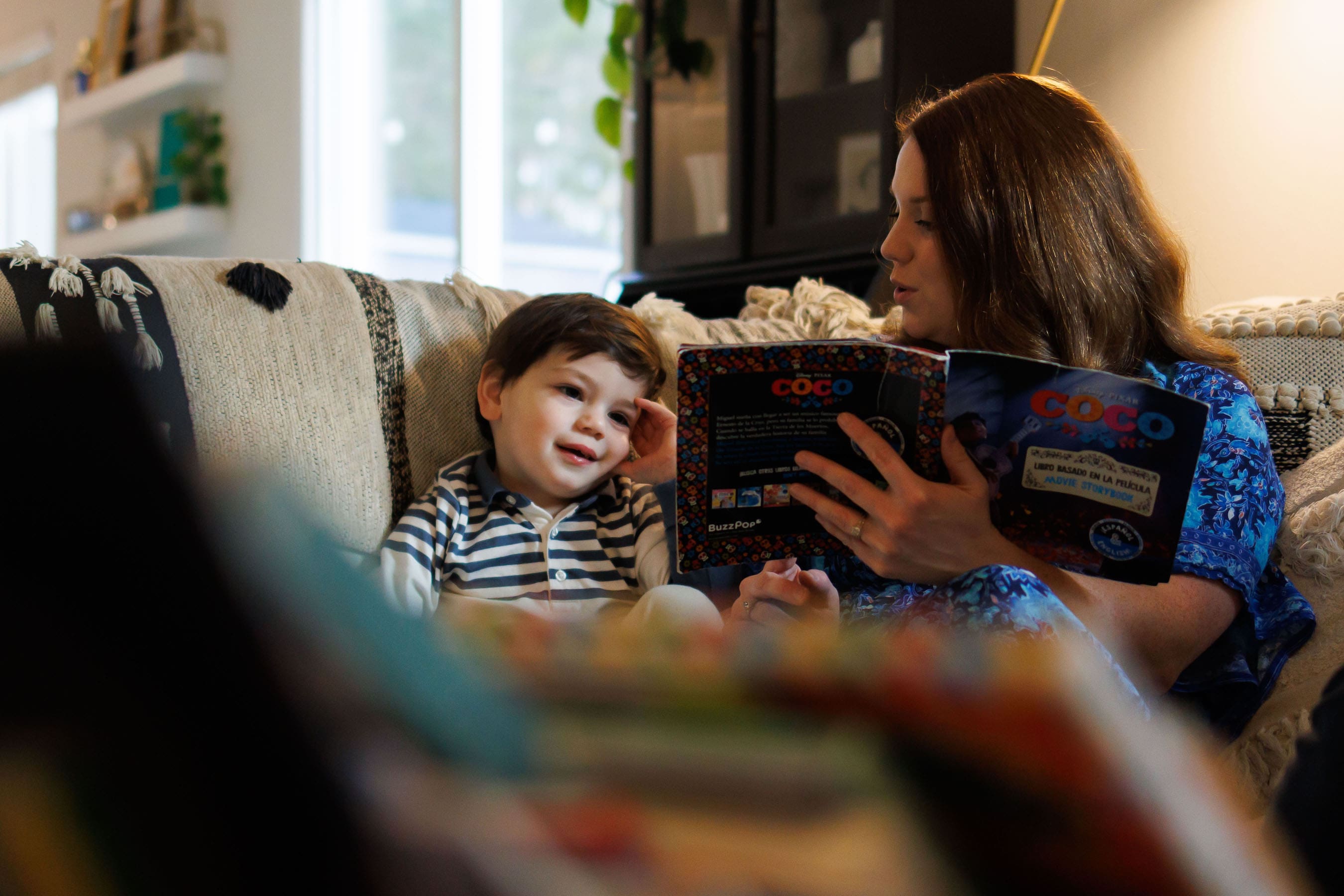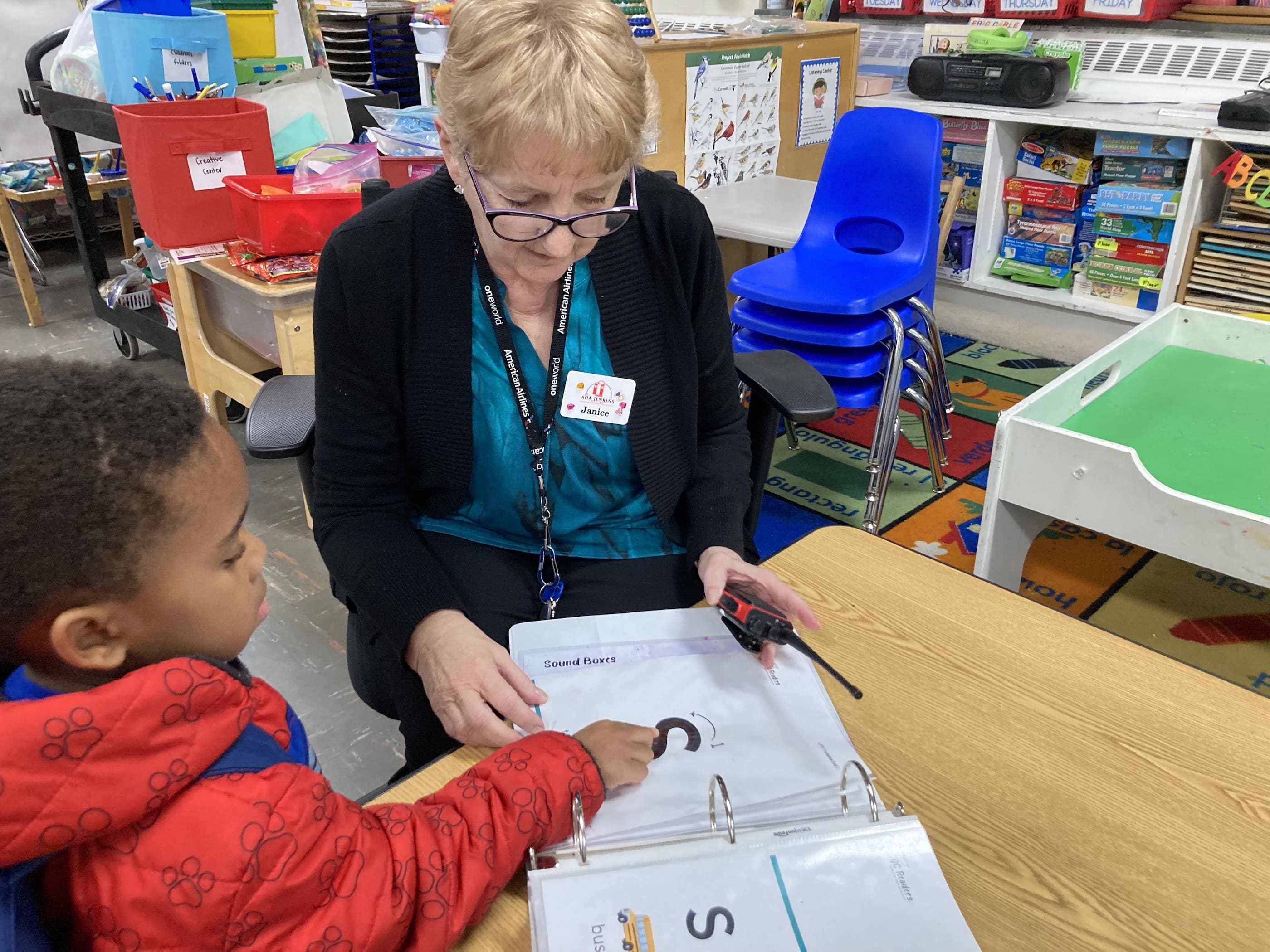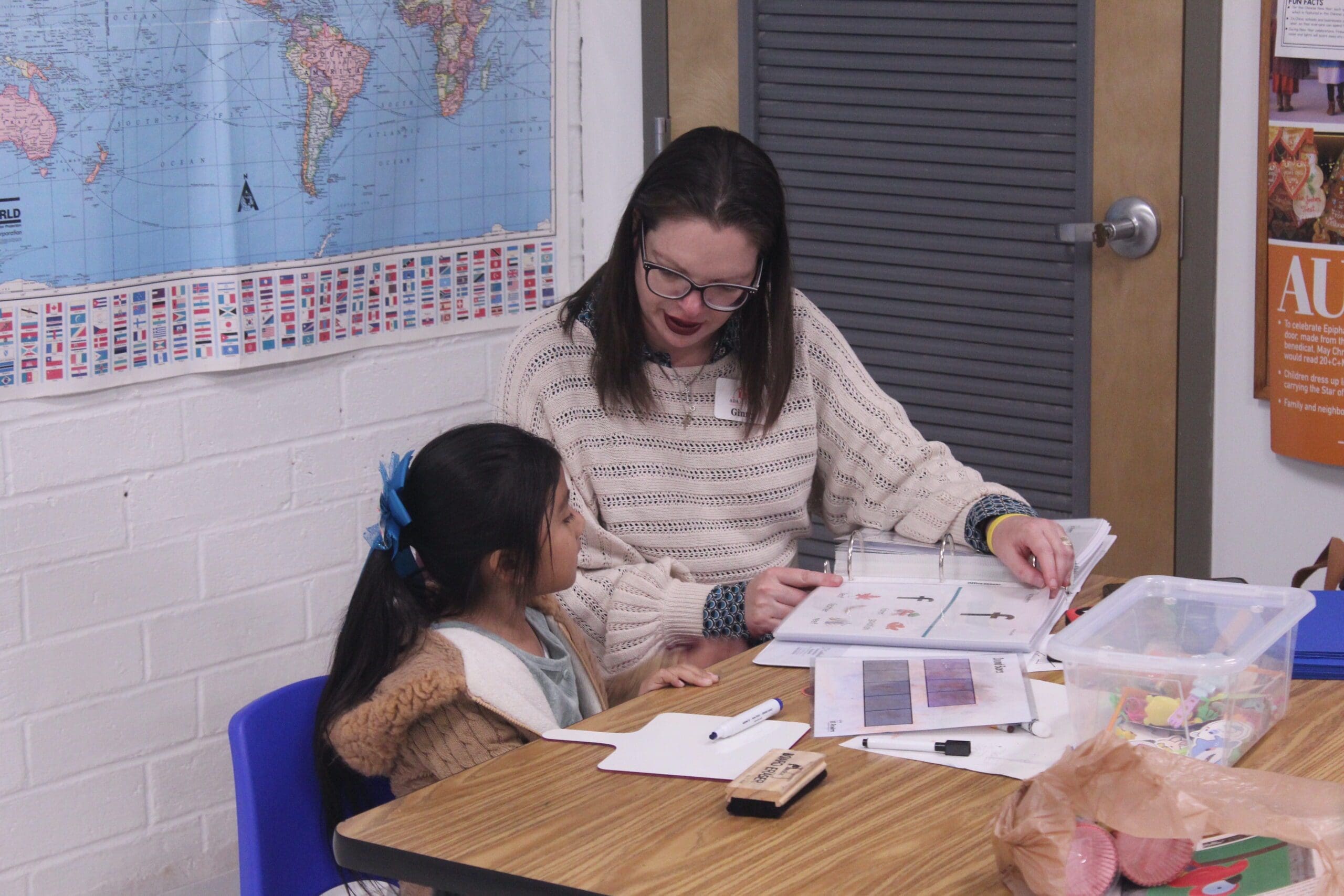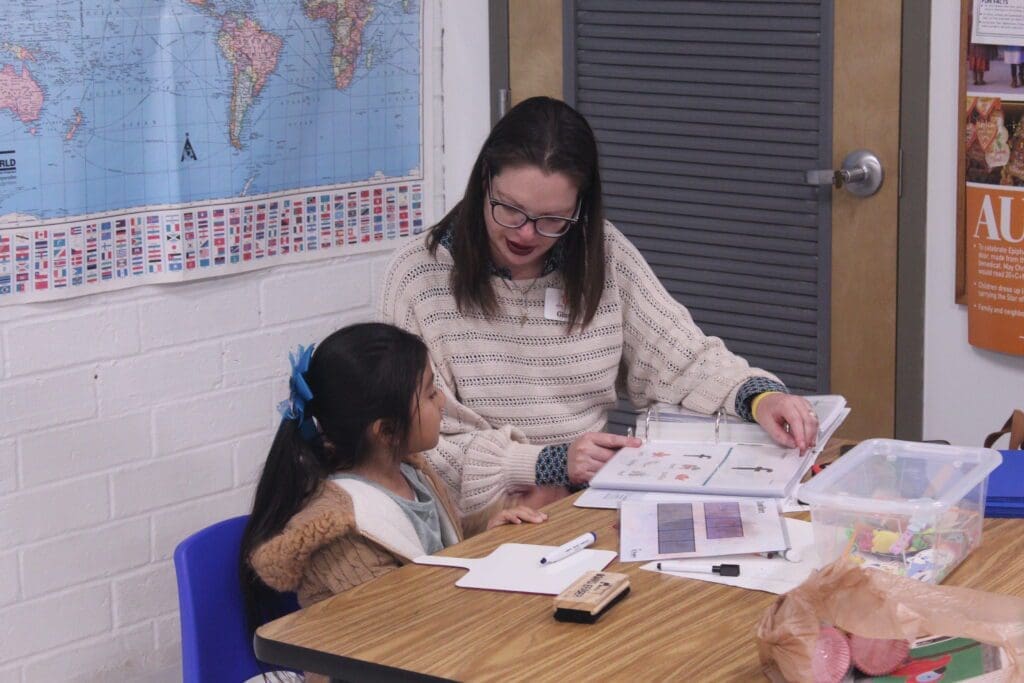
Kindergarten is a critical year for early literacy. An analysis by Harvard Professor James Kim found that the entire size of the reading achievement gap in spring 2019 for Charlotte-Mecklenburg Schools third graders was in place by the end of their kindergarten year. We found this research so compelling that Read Charlotte’s updated strategy includes a focus on helping CMS to increase the number of kindergarteners who finish the year meeting grade-level expectations for reading.
We know children need simultaneous support in both “constrained” skills like word reading and “unconstrained” skills like listening comprehension and background knowledge to become successful readers. In 2023, we increased our focus on listening comprehension in part through efforts like our multipartner, countywide Read Together campaign. Another major initiative in 2023 was the development of a new tutoring tool called Queen City Readers (QCR) that helps build basic word reading skills.
At kindergarten entry, instruction on word reading skills occurs, with a focus on letter-sound correspondence and early blending and decoding skills. This early period of word reading development provides an important opportunity for intervention with students who are falling behind, as their areas of need might compound and become more difficult to address in later grades. For example, a third-grade student who struggles with word reading will have more unique and complex needs than a kindergarten student whose word reading development is in the early stages.
In other words, intervening early provides a significant opportunity to relieve pressure on our system in the later years. That got our team at Read Charlotte thinking: How could we tap into our community’s capacity to make the most of that opportunity? We wanted to create a kindergarten-focused model with the potential for great reach, and great flexibility – something turnkey that could be used in a variety of settings, by a variety of volunteers.
QCR was designed with this in mind, to be delivered by adults with no formal background in literacy or education, and minimal training (volunteer tutors need less than an hour of training to get started). The materials come in binders, ready-made and easily distributable, and are meant to be used within a range of settings with existing infrastructure, like schools and community-based organizations.
“We believe Queen City Readers is a powerful way that our community can assist CMS to achieve its new literacy goals by increasing the number of kindergarteners finishing the school year on-level for reading,” said Read Charlotte Executive Director Munro Richardson.
Tutors help students develop word reading skills with QCR, which is grounded in an evidence-based, systematic approach to phonics instruction called synthetic phonics. The approach teaches students each individual letter-sound correspondence, and then how to blend them together. QCR has 26 20-minute lessons; identical in structure but each focused on a different sound.
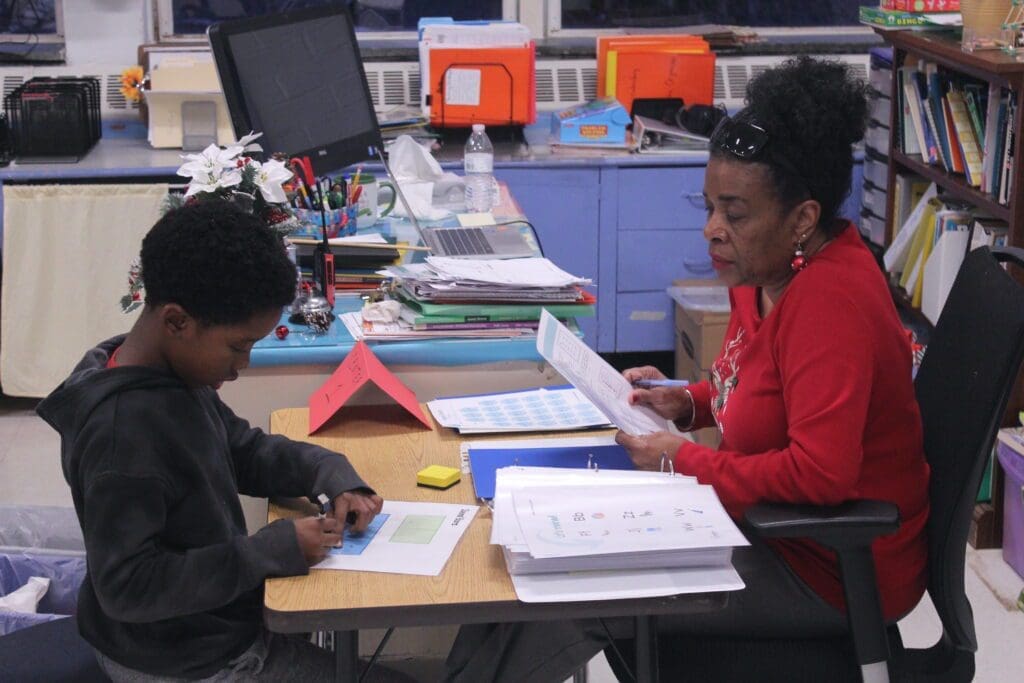
“The idea is, you teach each letter sound, each phoneme, really in an intentional order so that students really early on are able to blend the phonemes together to make words,” Read Charlotte K-1 Impact Manager Madison Brown said.
After just 10 lessons, students are equipped to decode about 80 words.
“We thought having that early decoding would give some success for the student, as well as the tutor,” Brown said. “I think in our experience we’ve found that tutors really want to feel like they’re making an impact. And although we’re focused on student outcomes, adults are important to get us there, so we felt it was really critical to help make sure that both the tutor and the student felt successful early in their tutoring journey together.”
The skills that QCR targets are covered in kindergarten, and its content aligns to the North Carolina English Language Arts standards.
“Research shows that intervening early is more effective than a ‘wait-and-see’ approach,” Brown said. “Keeping students on track early in their reading development prevents a compounding of needs later in their schooling.”
By specifically targeting word reading skills, QCR supports an important piece of what children need in order to be reading at College and Career Ready by third grade.
“Students receive high quality, explicit, direct instruction from their teachers each day. This core information and practice can be supported by giving students more reps outside of the classroom,” Brown said. “Extra practice identifying sounds, reading, and writing words can support students as they develop automaticity.”
Tutors are using QCR with students in our community today, and the results are promising. We began piloting the program in the spring of 2023 with a group of kindergarten students at Pineville Elementary School. In the fall, we expanded the pilot to several afterschool programs, and our partners at Pineville continued their management of QCR. In spring 2024, Charlotte-Mecklenburg Schools began piloting the program in five additional schools.
“Our community has the capacity to serve young students, and the tools to do so,” Brown said. “With the right coordination, we can positively impact our students and help prevent gaps from widening.”
